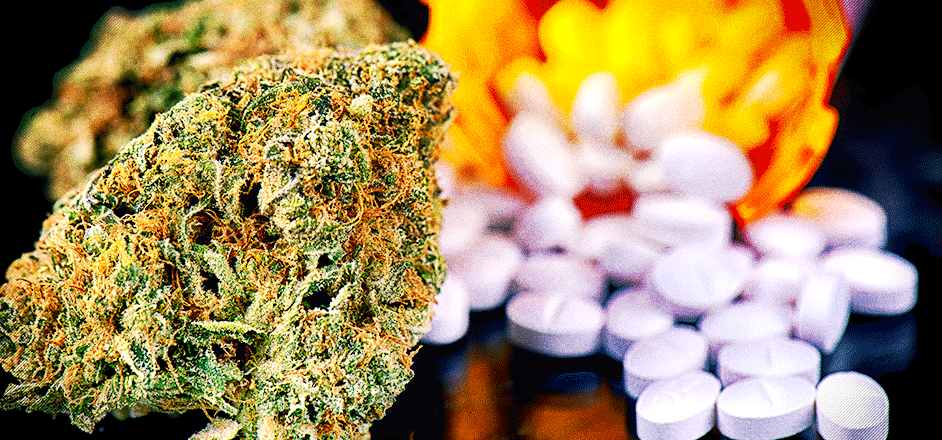Every single day in this country, 130 people die of opioid overdoses. That’s 910 people a week; 47,447(ish) Americans a year.
Which is disturbing, but perhaps not surprising.
According to the National Institute of Drug Abuse: between 21 and 29 percent of patients who are prescribed opioids, end up abusing them, and between 8 and 12 percent develop an opioid “disorder.” Doctors are prescribing these things like candy; oxycodone, hydrocodone, codeine and morphine have been the only prescription painkillers doctors could offer people, and boy, were they were offing them.
Undoubtedly that was a significant contributor to the current “opioid epidemic” in this country. That, and the fact that pharmaceutical companies assured doctors throughout the 90’s that prescription opioids like Oxycontin and Vicoden, were totally “safe for use” and wouldn’t get people hooked.
Right. Just look at us, now: two decades later and this country is gripped by an ever-escalating opioid addiction. Between 2016 to 2017 alone, overdoses rose by 30 percent across the US — a trend that doesn’t seem to be losing steam.
Luckily, doctors in Colorado now have an alternative option: a new bill passed on August 2nd will allow for doctors to prescribe cannabis for any health condition that they would have otherwise prescribed an opioid for.
“It was designed to give physicians a legal, open option to discuss [medical marijuana use] with patients,” Colorado Rep. Edie Hooton, a co-sponsor of the bill, told NBC News. “It normalizes the conversation around the issue.”
Until this bill passed, doctors around the state were forbidden from even talking with their patients about using cannabis medicinally. Because it is still federally listed as an illegal schedule 1 substance, they would have been putting their medical license at risk for merely suggesting or educating their patients on the pros/cons of cannabis use.
That meant that, even in reputable cancer treatment centers, when a suffering patient asked about the possibility of using cannabis to manage their pain, their doctor’s hands were tied. They couldn’t *legally make any recommendations about cannabis use.
But they could prescribe opioids, easy. So, many just did that instead.
That stands to change now and the outcomes could have immense effects on Colorado’s opioid addiction and abuse rates. And, by proxy, it could likely also affect heroin addiction and abuse rates, since 4 to 6 percent of people who misuse opioids end up eventually transitioning to heroin when their script runs out. The hope is, that doctors could prescribe medicinal cannabis for mild to moderate pain, instead of opioids.
Skeptics, however, aren’t so sure that this bill will do much (or anything) about either opioid or heroin addiction rates. A study recently published in the Proceedings of the National Institute of Sciences suggests that, in states where cannabis has been legalized, opioid overdose death rates were actually 23-percent higher than in states where cannabis is still illegal. That directly contradicts an oft-cited study from 2014 published in the JAMA Internal Medicine Journal, which found that opioid death rates decreased by 25 percent.
That distinction between studies is certainly a statistic that deserves consideration and further research — but it also isn’t a reason that doctors should be legally forbidden from prescribing pot for their patients’ pain instead of oxy- or hydrocodone.
Especially when this opioid crisis is killing almost 50,000 Americans a year.
Can cannabis solve the opioid addiction crisis outright, if doctors could prescribe it everywhere? No, it likely wouldn’t. It’s no panacea and no one is trying to make it out to be one. Cannabis can only go so far as a pain reliever and anyone who’s ever used it knows that — there will always be a place for opioids as medicinal pain relievers; they just shouldn’t be the only available legal option out there. Doctors should have a non-addictive, non-lethal, natural alternative also.
And, now, in Colorado doctors do.




Leave a Reply